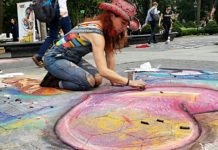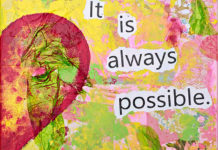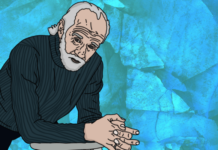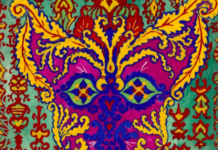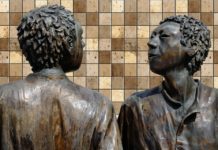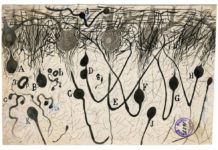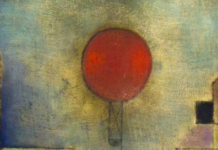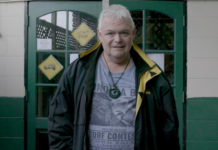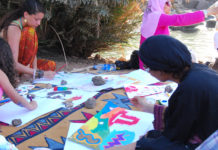To Live and (Almost) Die in L.A.: A Survivor’s Tale
After 25 years of chronic emergency, 22 mental hospitalizations, a stint at a “community mental health center,” 13 years in a "board & care," repeated withdrawals from addictions to legal drugs, and a 12-year marriage, I plan to live every last breath out as a survivor, an advocate, and an artist.
The Bipolar Artist: A Lifelong Sentence to Bear
I was told that I had only two choices: Do not have children, or take lithium while I was pregnant—the drug that posed the least amount of birth defects, and the very medication that had killed the painter in me years ago. I refused both options and set out on my own, and luckily found a willing psychiatrist to help me taper off the meds.
Can Cultural Engagement Protect Against Depression?
A new study examines the preventative effects of cultural engagement has on depression among older adults.
Envisioning Psychiatric Drug Freedom
Psychiatric meds can shut down the emotions and consciousness enough to make it possible to tolerate dynamics that would inspire rage or surges of empowered activity without the meds. It can be helpful to look closely at these blocks and start to create a map to freedom, understanding that it is a complex process that involves not only the physiology of the body of the individual taking meds, but the architecture of the social system around that person.
Hopeless But Not Broken: From George Carlin to Protest Music
From CounterPunch: Although people are often pathologized and shamed for feeling hopeless, hopelessness is sometimes a natural reaction to an oppressive political climate. George Carlin...
The Enduring Myth of the Mad Genius
From Wellcome Collection: It has long been assumed that great writers and artists must be touched by madness. However, no link between artistic talent and...
Philosophers Question the Separation of Medicine and Culture
Radically questioning the distinction between the objectivity of science and the subjectivity of culture can give way to powerful biocultural methods of healing.
Why U.K. Doctors Are Doling Out ‘Social Prescriptions’
From CBS Radio: U.K. doctors are increasingly prescribing social interventions — community based solutions such as art classes, gardening clubs, and walking groups — as an alternative...
Research Shows Art Courses Can Improve Mental Wellbeing
From PsyPost: A new study has found that a course of arts-on-prescription can provide a significant improvement in mental wellbeing, including in those with very...
Study Explores Māori Community’s Multifaceted Understanding of “Psychosis”
A new study explores how “psychosis” and “schizophrenia” are viewed within the Māori community in New Zealand.
Soteria: Reflections on “Being With”
From the Foundation for Excellence in Mental Health Care: Yana Jacobs, LMFT reflects on her experiences providing art therapy at a Soteria House and "being...
Art and Images in Psychiatry
Between 2002 and 2014, JAMA Psychiatry published monthly essays by Dr. James C. Harris exploring the role of visual arts in representing emotional distress, trauma, life...
How Relational Therapy Enhances a Sense of Self and Relationships
Relational therapy can be informed by the intersubjective dynamics observed in early childhood to facilitate the development of healthy relational patterns and a strong sense of self.
The Art of Madness
In this piece for The Paris Review, Cody Delistraty details the French painter Jean Dubuffet's efforts to collect artwork made by people deemed mentally ill...
Study Finds Heavy Metal Music Beneficial to Mental Health
A new study highlights the role heavy metal music plays in the mental health of adolescents facing adversity.
A Glimpse Into the Brain, Drawn by the Father of Neuroscience
From The New York Times: A new exhibit at the Grey Gallery at New York University presents 80 hand-drawn renderings of the brain by Santiago...
Histories of Violence: Neurodiversity and the Policing of the Norm
In this interview for the Los Angeles Review of Books, cultural theorist and philosopher Erin Manning discusses neurodiversity, a movement that seeks to depathologize traits, experiences, and...
How Our Ancestors’ Trauma May Influence Who We Are
In this blog post, Dale M. Kushner explains how the field of epigenetics can illustrate the role of ancestral and transgenerational trauma in shaping our...
“Let the Soul Dangle”: How Mind-Wandering Spurs Creativity
From Aeon: An emerging field of neuroscience has begun to reveal how contemplating art can lead to positive mind-wandering, psycho-biological self-regulation, and creativity.
"Can art itself...
Mad Pride: Making a Truce With the Voices in Your Head
In this piece for Vice, Tess McClure describes New Zealand's Mad Pride movement, a movement that seeks to destigmatize, normalize, and celebrate experiences of voice-hearing...
New Traction for Art Therapy as a Treatment for Depression
New study investigates the acceptability of a phenomenologically informed, manual-based art therapy for clients diagnosed with moderate to severe depression.
Agency and Activism as Protective Factors for Children in the Gaza Strip
Researchers recommend a ‘politically-informed focus', including activism, when assessing children and designing interventions in areas of chronic political violence.
Twenty Years of Art at Bethlem Hospital
From BBC: At Bethlem Royal Hospital, a psychiatric hospital in London, patients are given the opportunity to work in the hospital's art studios as part...
Birthday Letter: Sylvia Plath and “Daddy”
In this piece for The Paris Review, Belinda McKeon analyzes the poetry and letters Sylvia Plath wrote in the few months just before her suicide.
It’s Easy to Get Caught Up in Constructing Our Selves
In this video for Aeon, clinical psychologist Daniel Brown discusses the ways that the construction of a fixed selfhood can limit the possibilities of our...


